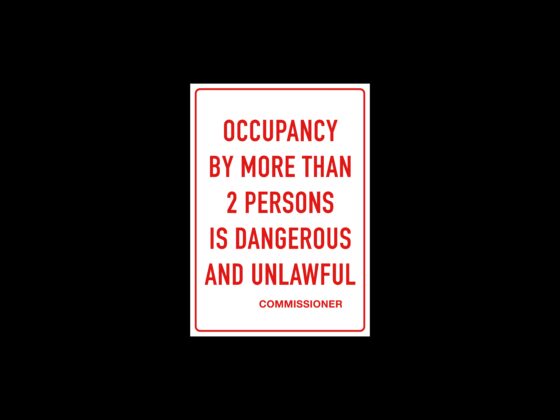
The core of successful hospitality management is flexibility, change and foresight. We live in a world that is in a constant state of evolution and business today is on the cusp of a profound and generational transformation. Radical technological advances led by AI, shifts in guest expectations, a new generation of employees with diverse lifestyle values and economic flux are all affecting business. To be a leader, a successful management company must do more than track macro trends: it must help define and direct those trends by embracing new tools while empowering the people who define the essence of hospitality to deliver an exceptional guest experience.
MACRO TRENDS RESHAPING HOSPITALITY
COVID created a seismic lifestyle shift, and like all businesses, hotel owners and investors have reset their expectations. Fluctuating interest rates, inflation and shifts in capital markets are pushing for greater transparency, faster decision-making and stronger accountability from management teams. Financial headwinds create higher borrowing costs that are squeezing returns. Delinquency rates climbed to 6.59% in July 2025, compared to an average of 1.4% in 2019, according to the CRE Finance Council. Expenses continue to outpace revenue growth, forcing owners to be more selective with capital spending and to look for creative financing solutions. Many are taking a “wait-and-see” approach, slowing transactions and holding onto assets longer. In this challenging environment, strong management partners are invaluable as they can help owners make smart CapEx choices, maximize revenue opportunities and keep costs under control.
Leah McFarland, SVP of revenue strategy for Crestline Hotels & Resorts, explained: “In today’s rapidly changing market, owners expect more than a monthly report. They need real-time insights and precise forecasts.” She cited as an example Crestline’s proprietary business intelligence tool that delivers daily, real-time portfolio-wide data to ownership. Managers who are employing rapid technology are the gold standard for building trust, superior decision-making and maximizing returns for their owners and partners.
TECHNOLOGY TRANSFORMATION: EFFICIENCY AND EXPERIENCE
Technology is rapidly changing how hotels generate revenue and deliver guest experiences. Over the last decade, revenue management has grown increasingly automated and the latest disruptor, AI, is now redefining digital marketing. Recent indicators show website traffic declining anywhere from 18% to 64%, presenting a new opportunity for marketers.
Amanda Adkins, VP of digital strategy at Crestline Hotels & Resorts, said, “The disruption in web activity doesn’t mean websites are less important; it means they need to be smarter and optimized for AI. Guests arriving from AI-driven searches tend to be more engaged, giving our hotels a tremendous opportunity to connect and convert them to loyal customers.”
Hotels that embrace new technology are becoming smarter and more efficient. Operations are going mobile first and cloud-based. IoT-powered energy management and predictive maintenance, versus preventative maintenance, to contactless guest services, such as mobile check-in, are changing the landscape. AI also facilitates administrative work, such as staffing and guest satisfaction tracking, making it easier to spot staffing needs, identify training opportunities and anticipate and prevent facilities issues before they escalate.
One lesson is clear: Though AI boosts efficiency, it can’t replace genuine hospitality. Technology should enhance, not overshadow, the human connection that defines the guest experience. The most successful hotels will be the ones that balance tech adoption with ongoing investment in people and training.
THE TALENT EQUATION: WORKFORCE EVOLUTION
Staffing continues to be an ongoing industry demand. Around 65% of all hotels still report shortages, with 71% struggling to fill open roles. Turnover is a challenge as hospitality competes with industries such as logistics, warehousing, and customer support for workers.
Deanne Johnson-Anderson, SVP of human resources for Crestline, said, “To attract and retain great talent, hotel managers must rethink how they recruit, develop, and engage their teams. Competitive pay and benefits, along with giving employees quick access to earnings through technologies, such as electronic tipping, are necessities, while recruitment needs to be transparent and easy.”
Embracing technology to help applicants quickly see pay rates and benefits is critical. Over half of entry-level candidates apply by smartphone, so having mobile-friendly applications is essential. Beyond pay, candidates are prioritizing schedule flexibility, benefits, lifestyle perks, such as parking or commuter assistance, and clear career growth opportunities. Johnson Anderson continued, “Crestline also offers educational benefits and training and strongly encourages participation in the AHLA Foundation’s Apprenticeship program, which helps employees learn new skills and sets a clear path to advancement.”
MEANING FOR OWNERS, OPERATORS, CONSULTANTS
Today’s environment demands agility and foresight. Operators who focus on driving revenue, controlling costs and embracing new technology without losing the human touch will be the leaders. The hotels that will stand out will adopt the latest tools, while creating a culture of innovation that values training and stays true to the authentic guest experience. It is essential to invest in people and train on technology.
Story contributed by Amelia Zimmerman, VP of sales, business development, Crestline Hotels & Resorts.








